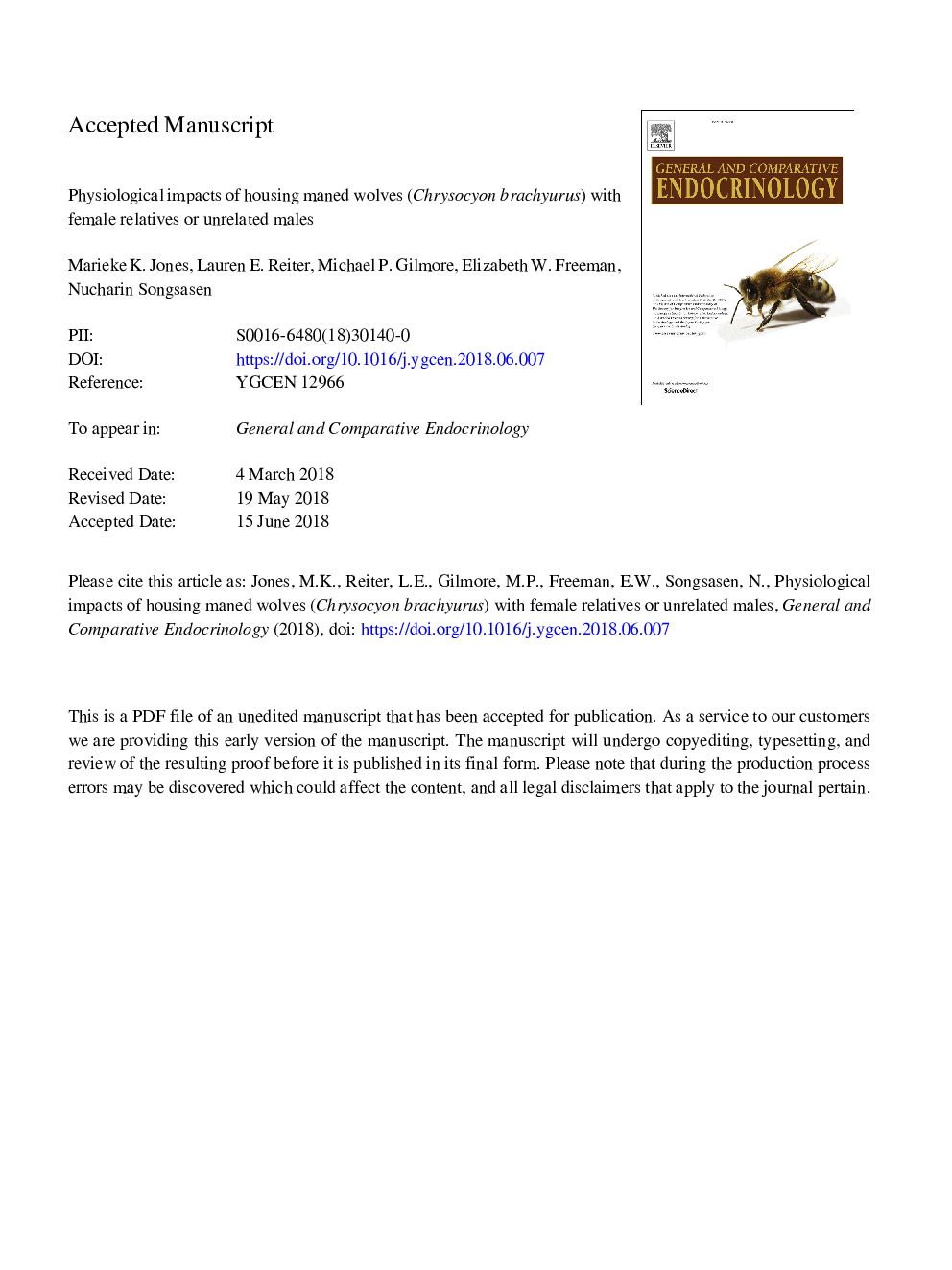| کد مقاله | کد نشریه | سال انتشار | مقاله انگلیسی | نسخه تمام متن |
|---|---|---|---|---|
| 8950944 | 1645799 | 2018 | 20 صفحه PDF | دانلود رایگان |
عنوان انگلیسی مقاله ISI
Physiological impacts of housing maned wolves (Chrysocyon brachyurus) with female relatives or unrelated males
دانلود مقاله + سفارش ترجمه
دانلود مقاله ISI انگلیسی
رایگان برای ایرانیان
کلمات کلیدی
موضوعات مرتبط
علوم زیستی و بیوفناوری
بیوشیمی، ژنتیک و زیست شناسی مولکولی
علوم غدد
پیش نمایش صفحه اول مقاله

چکیده انگلیسی
The maned wolf is a threatened canid species native to South America. Previous studies have suggested the species exhibits induced ovulation. In captive breeding facilities, reproductive success is low while rates of neonatal mortality are high. Females that are not recommended for breeding are frequently housed together. However there has never been a systematic study of the reproductive consequences of co-housing females. This study was conducted for three purposes, to: (1) corroborate the presence of induced ovulation, (2) determine whether elevated cortisol is implicated in neonatal pup mortality, and (3) evaluate the endocrine correlates of group housed females. Using fecal hormone monitoring for estrogen, progesterone, and cortisol, 43 cycles from 33 female maned wolves were studied from 2002 to 2015. Females were categorized by their reproductive status: pregnant and successfully raised pups (PR; nâ¯=â¯11), pregnant with neonatal pup demise within 3â¯days (PL; nâ¯=â¯7), housed with a male but no signs of breeding or pregnancy (PP; nâ¯=â¯10), housed singly (S; nâ¯=â¯8), or housed with related females (F; nâ¯=â¯7). Estrogen and progestagen remained at baseline for all females not housed with a male (S, F), while elevations consistent with ovulation were seen in females housed with a male (PP, PL, PR). Compared to PR females, PL individuals showed similar cortisol levels throughout the cycle and slightly lower progesterone levels during gestation. As for the effect of co-housing related females, F females showed estrogen and progesterone levels lower even than S females while cortisol levels were elevated compared to all other groups. These findings support the previous evidence of induced ovulation in the maned wolf. Although elevated cortisol does not seem to be implicated in pup loss, a non-significant trend towards lower progesterone during gestation could be implicated. Future studies should assess depressed progesterone levels as a correlate to neonatal pup mortality. Female maned wolves housed with related females experience suppressed reproductive hormones and elevated adrenal hormones. Therefore, a more systematic study of hormonal and behavioral correlates to co-housing with related females is warranted.
ناشر
Database: Elsevier - ScienceDirect (ساینس دایرکت)
Journal: General and Comparative Endocrinology - Volume 267, 1 October 2018, Pages 109-115
Journal: General and Comparative Endocrinology - Volume 267, 1 October 2018, Pages 109-115
نویسندگان
Marieke K. Jones, Lauren E. Reiter, Michael P. Gilmore, Elizabeth W. Freeman, Nucharin Songsasen,